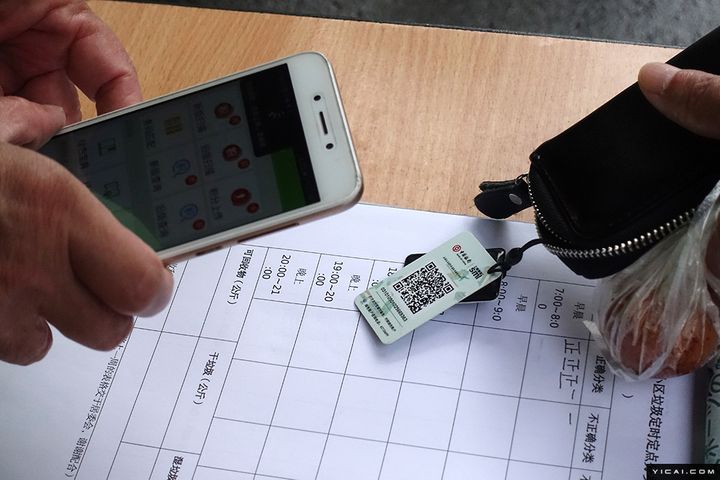 Shanghai Tries Out Smart Trash Cans, Other High-Tech Garbage Disposal
Shanghai Tries Out Smart Trash Cans, Other High-Tech Garbage Disposal(Yicai Global) July 9 -- Shanghai introduced compulsory garbage sorting last week and districts and businesses in the city have come up with high-tech solutions for waste disposal to reduce costs and improve efficiency.
A neighborhood in Minhang district has set up the city's first intelligent trash can system, the Science and Technology Daily reported. Residents can open the containers only at certain times with a specified smart card. This allows the neighborhood committee to identify who is disposing of garbage and when. Cards that are used irregularly or not at all alert the committee to residents who are likely to be dumping waste outside the designated cans.
Domestic waste is now classified into four categories: dry refuse, wet trash, recyclable waste and hazardous waste. Individuals who fail to sort garbage and do not change their ways can be fined as much as CNY200 (USD29), while businesses and institutions could face penalties of up to CNY50,000 (USD7,260) each.
The municipal government is also enhancing its use of gathered data and has set up information-based platforms to supervise and manage preliminary waste sorting and the transportation of waste from collection to disposal.
Shanghai Liming Resources Reuse uses cooling towers to prevent the re-synthesis of harmful substances from gases generated from the combustion process. "Our chimneys don't emit smoke, and the smoke treatment meets the European Union 2000 standards," said General Manager Hua Yinfeng. High temperature combustion also inhibits the generation of carcinogenic dioxins.
A farm produce market in Pudong's Yangjing district has installed a garbage disposal unit that can process 500 kilograms of fruit and vegetable waste a day. Micro-organisms break down the food waste into water and a small amount of solid residue. This is then used in the irrigation and fertilization of crops.
Prof. Jin Fangming and her team at Shanghai Jiaotong University's School of Environmental Science and Engineering have successfully tested the first continuous hydrothermal recycling device for wet waste. Its hydrothermal oxidation technology is more efficient than the traditionally used anaerobic fermentation process and takes up much less space.
A hydrothermal treatment plant that can dispose of 100 tons of kitchen scraps a day takes up just 60 square meters of land.